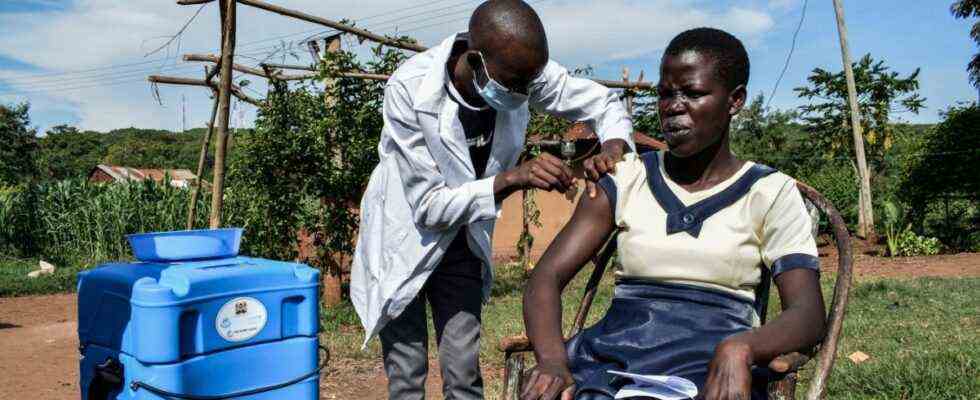Seldom has a panel of experts seen their own prognosis confirmed so quickly and in such a sad way. In 2018, the World Health Organization (WHO) and the World Bank set up the independent Global Preparedness Monitoring Board (GPMB) to check how well the world was armed against health crises. Global protection is very bad, was the conclusion of the first report published by the committee in 2019: A pandemic caused by a new respiratory pathogen could quickly bring the world to its limits, it said, because Sars-CoV-2 was not yet known . In their follow-up report 2020, the team found that they were right on almost all points. The world has collectively failed in pandemic preparedness. The third report has now appeared – and it is no less gloomy.
The authors around the former Secretary General of the International Federation of Red Cross and Red Crescent Societies, Elhadj As Sy, characterize the state of the world with the word “broken”. In the second year of the pandemic, the global community is suffering more than ever from injustice, division and the non-binding nature of its health policy. And above the bitter inventory hovers the question that Sy asked during the presentation of the report at the World Health Summit in Berlin: “If we are smart enough to predict events, why aren’t we smart enough to prevent them?”
On the one hand, the team specifically criticizes the growing gap between poor and rich countries. It includes everything that plays a role in the fight against the coronavirus, from protective clothing, tests, oxygen and personnel to vaccines. While the rich countries have had enough vaccine available for every inhabitant since the summer at the latest – some of them even far more – the protection in many poorer countries is still not even enough for the most vulnerable. As recently as September, fewer than ten percent of all doctors and nurses in Africa were vaccinated, the WHO announced a few days ago.
Although there is no lack of plans and initiatives for a fair vaccine distribution, these efforts would ultimately have failed, the GPMB report states: “Global solidarity remains a mere catchphrase”.
There are no effective mechanisms to hold countries accountable
The authors attribute the situation to deeply rooted grievances. Global solidarity is still understood as an act of goodwill rather than a common response to a common problem. Solidarity is therefore a mere gesture, performed at will, when it is opportune – and without any guarantee. It is by no means certain that the generous announcements made by politicians will actually be implemented.
This attitude is not only found in individual governments, but begins “right at the top,” as the authors write. The UN General Assembly, the Security Council, the World Health Assembly, the G7 and G20 participants – they all discussed ways out of the pandemic and in the end produced “little more than declarations of intent”. The experts cannot find any evidence that these institutions had a substantial effect on the course of the pandemic.
Add to this the deep divisions in many areas of life. One only has to take a look at social networks to understand what the authors mean when they say: Covid-19 broke out in a polarized world and the rifts have deepened since then. This also applies to the global stage: “Polarization, geopolitical conflicts, nationalism and skepticism about multilateralism have led many countries to pull up the drawbridge instead of looking for global solutions,” the report says. Relief efforts are also fragmented, with different actors engaging in different ways in different areas.
“The world continues to experience the same cycle of panic and forgetting”
Based on these observations, the team of authors present six suggestions for how to deal with health crises in the future. On the one hand, they are calling for a binding international agreement for emergencies under the umbrella of the WHO. For its part, WHO must be strengthened – with more resources, authority and the ability to hold member countries accountable. An independent body should monitor compliance with the agreement.
The financial aid for emergency situations should no longer come solely from the many pots of different and poorly coordinated organizations, but should be controlled by a fair global mechanism. It could be based at the World Bank, for example, suggest the experts. For the exchange of data, findings and laboratory samples as well as for the distribution of prophylactic and therapeutic agents, a central control system is required that follows clear principles based on fairness. Finally, civil society and the private sector should be better involved in epidemic prevention and control. Among other things, this could improve communication and correct incorrect information in good time.
None of these are revolutionary proposals. “They are old demands that have never been realized,” says WHO Secretary General Tedros Adhanom Ghebreyesus and warns against letting another chance for their implementation slip by. Because once again a well-known phenomenon emerges, as co-author Ilona Kickbusch from the Geneva Institute for International Studies and Development says: “The world continues to experience the same cycle of panic and forgetting”. And even now it is to be feared that the world is again approaching the stage of oblivion. Attention is already beginning to turn to other topics and the vigor is waning, adds Sy. In some places, the pandemic is believed to be over.
“It’s easy to get cynical,” says Elhadj As Sy. But one thing is clear to him: “We will be confronted again and again with shocking events and dangers, be it in relation to health or the climate. Whether they develop into a catastrophe depends on our preparedness.” The window is still open for a real change. Because acute crises offer the only chance for comprehensive change, emphasizes Jeremy Farrar, co-author of the report and head of the British Wellcome Trust: “But if we do not take advantage of this crisis, when do we act?”

